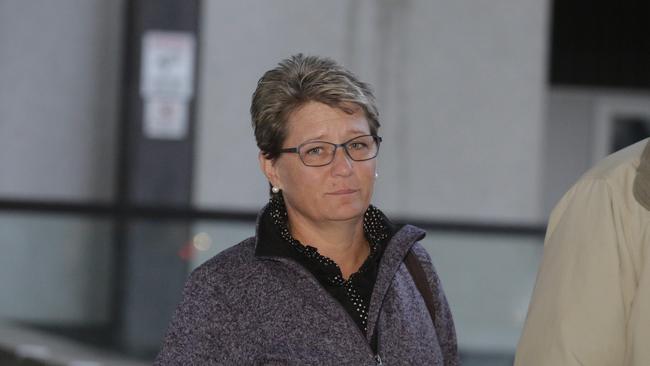Royal commission: rural ‘specialist’ bank sent farmers to brink
A Queensland cattle family was nearly ruined by specialist farm lenders Rabobank, the royal commission has been told.

A Queensland cattle family was nearly ruined by specialist farm lenders Rabobank after its local manager, who was under pressure to write more loans and achieve a performance bonus, found them a second property to buy unsolicited for $2.9 million that was being sold by one of his other clients.
In a horrific case study riddled with conflicts of interest, grazier Wendy Brauer of Theodore, Queensland, told the financial services royal commission she trusted the local Rabobank manager and wrongly believed he was her friend.
Instead, the commission heard how Rabobank had set its local manager a target of writing $15 million of new loans in the 2009 year under threat of no bonus, and allowed its unqualified managers to value the rural properties it was writing loans against.
Counsel assisting the royal commission, Rowena Orr, asked Rabobank’s southern Queensland manager, Bradley James, how this conflict was allowed, given high unrealistic valuations of farms would allow the unnamed local manger to secure bigger loans on behalf of his customers and so go closer to meeting his loan-writing target.
Mr James said the practice would not be allowed today, since the Australian Prudential and Regulatory Authority had identified in 2016 that Rabobank had a weakness in its “originator practices”, especially relating to non-independent property valuations by its own loan-writing managers.
“But you encouraged your managers to go out and bring in as many (new) loans as you could; this manager was incentivised by Rabobank to (secure new) loans and convert all opportunities, and that’s what he was doing?” Ms Orr asked.
“Yes, we still have lending targets and KPIs (key performance indicators) to enable us to grow our business through increased lending,” Mr James replied.
Ms Brauer and her husband Adrian came close to losing their main Theodore property and home Kia-ora, after Rabobank first told them of an opportunity to buy a $4m property, Jamberoo, that was for sale, and then arranged for them to buy a large slice of it for $2.9m, with an unrelated second Rabobank client buying the remaining share.
The Brauers were given a $3m loan facility to buy Jamberoo — based on valuations by the same Rabobank manager who was also acting on behalf of the Rabobank vendor farmer — and the promise of an extra $300,000 to buy breeding cows to stock the new bush block when needed.
Ms Brauer told commissioner Kenneth Hayne that within a year they were told by Rabobank they would only be allowed to access the promised funds to buy vital cattle if they sold a property and then repaid $3m of debt by 2013.
“It nearly wrecked us … we had just $5 in our trading account at one stage and we didn’t have the money to even drive to see our kids (at school in Brisbane); we have ended up at least $1m in the red from all this,” she said.
“And to think I’d recommended these jerks to other people because they had said they were a specialist rural bank that understood the ebbs and flows and cycles of farming.”
Tasmanian farmer Michael Hirst gave evidence about how thatANZ had encouraged him to take loans, and then froze his accounts and forced him to sell fivefive farms, leaving him familydestitute.
ANZ’s head of lending services, Ben Steinberg apologised to the family yesterday, five years after the bank moved against them.



To join the conversation, please log in. Don't have an account? Register
Join the conversation, you are commenting as Logout